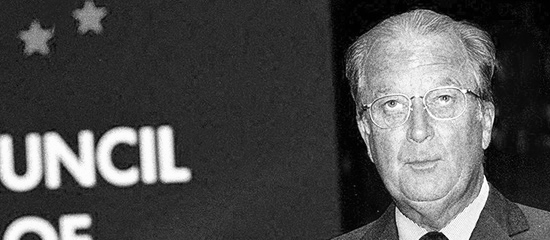Albert II
King of the Belgians
Speech made to the Assembly
Tuesday, 23 June 1998

Madam President, ladies and gentlemen, a few weeks ago the fiftieth anniversary of the first Congress of the European Movement was commemorated in The Hague.
It was also in 1948 that the United Nations adopted the Universal Declaration on Human Rights.
This double appeal, European and universal, in favour of respecting fundamental rights and democratic principles inspired ten countries, mine among them, in 1949 to create the Council of Europe and its Consultative Assembly.
Today, forty countries of our continent have solemnly undertaken to work together for the purpose, in the words of the treaty, of “safeguarding and realising the ideals and principles which are their common heritage and facilitating their economic and social progress”.
With the impending creation of the single, permanent Court of Human Rights and with the office of Human Rights Commissioner, your institution is availing itself of powerful instruments enabling an even greater guarantee of respect for human dignity.
On the eve of the fiftieth anniversary of your institution, Madam President, it gives me particular pleasure to address this Assembly and to expound certain themes which we, in Belgium, hold dear to our hearts and which, moreover, are universal.
Madam President, ladies and gentlemen, the dignity of man cannot endure any compromise. To slight this dignity is intolerable. It is the cornerstone of our millennial European civilisation. The weakest members of our society are those with the greatest difficulty in asserting their right to be respected and to have their dignity protected. This is the case, most particularly, of the unemployed, of the poor, of children and of ill- treated women.
In Belgium, we have lived through distressing times when appalling crimes, perpetrated against children, were uncovered. An intense emotion and widespread solidarity united the population in sympathy for the parents and families who suffered tragic loss due to much evil-doing.
Out of this tangible solidarity, my country has drawn its conclusions both on a national and on an international level.
At the end of March, I had occasion to inaugurate in Brussels the new European Centre for Missing and Sexually Exploited Children. Working under the name of “Child Focus”, this institution provides invaluable assistance to the families of victims by setting up an extensive national and international network of contacts.
The Council of Europe has – it seems to me – a very definite role to play in drawing up binding international standards of criminal law in this area. These are indispensable instruments for punishing child abuse and combating child pornography.
The World Congress Against Commercial Sexual Exploitation of Children, convened in Stockholm in 1996, was considered in Belgium as a crucial stage in advancing international awareness of this scourge of our society.
I should like to thank the German authorities, the outgoing Presidency of the Council of Europe, for having taken the initiative of organising a European conference here in Strasbourg at the end of April as a follow-up to the Stockholm World Congress. We are very happy that this conference has produced positive results and that it has confirmed the commitment of the international community to stepping up the fight against sexual abuse of children.
At that meeting, my country proposed that a new convention be drafted at Council of Europe level. Its purpose would be to define common international standards and rules of extraterritorial competence as well as to reinforce international judicial cooperation in the fight to safeguard the physical and moral integrity of children.
(The speaker continued in Flemish) (Interpretation)
The fight against traffic in human beings, particularly women from third world and eastern European countries, needed to be coordinated on an international level. Technological and economic progress did not solve all society’s problems. Materialism and individualism had increasingly characterised society. Despite the lessons of recent history, racism and nationalism had again raised their ugly heads. The Centre for Equal Opportunities in Belgium was an example of how these could be fought against. The Council of Europe had an important role to play in the protection of human rights. Countries which had recently joined the Organisation had expressed unconditional endorsement of its principles. All countries should play their part in protecting human rights.
(The speaker continued in English.)
Ladies and gentlemen, it is up to all of us together to continue the struggle for human rights. Thank you for your attention.
